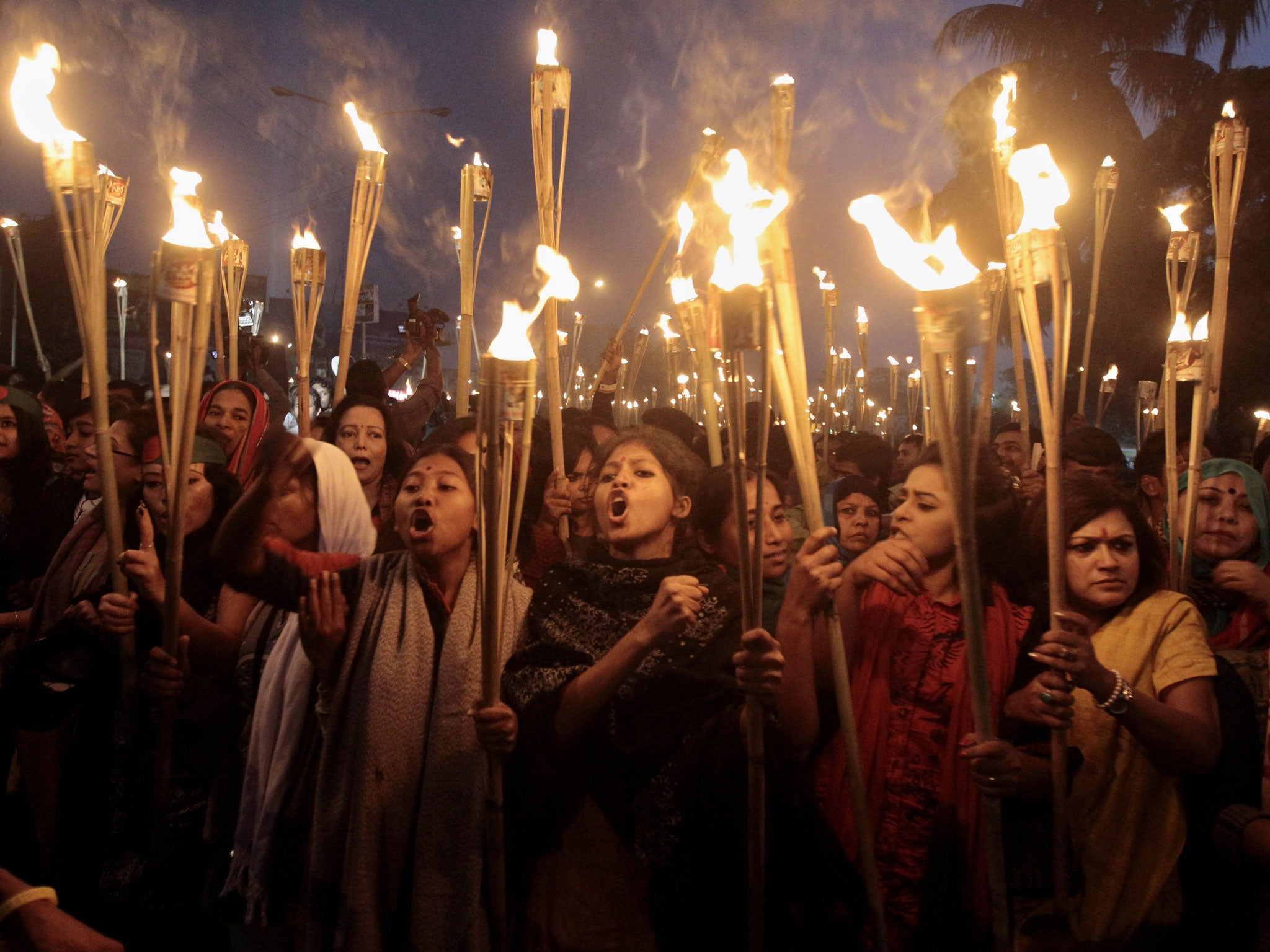Bangladesh executes Islamist leader and convicted war criminal Abdul Quader Mollah over deaths in war of independence
Violent backlash is expected after the hanging of the man who was responsible for more than 380 deaths during the country’s war of independence in 1971

Bangladesh executed the Islamist leader and convicted war criminal Abdul Quader Mollah late last night, making him the first person to die for crimes against humanity during the country’s struggle for independence with Pakistan in 1971.
The move is widely expected to ignite a bitter reaction from his party’s followers.
News of the death came hours after the Supreme Court of Bangladesh denied Mollah’s petition to review the ruling. The country is now bracing itself for a violent backlash from Jamaat-e-Islami (JI), of which Mollah was the assistant secretary general.
It is also expected to deepen political turmoil across the country, where the ruling Awami League has been unable to reach agreement with the opposition Bangladesh Nationalist party (BNP), an ally of JI, over acceptable conditions for holding forthcoming national elections.
The elections, scheduled for January, have been boycotted by the opposition, which has pressed for a neutral caretaker government and complained that their leaders and activists are being persecuted by the ruling party. Most of the men convicted for war crimes over the past four years are top opposition leaders.
Sheikh Yousuf Harun, chief government administrator in Dhaka, last night confirmed that Mollah had been hanged at 10.01pm local time. It caught the nation by surprise with much of the lead-up cloaked in secrecy. Earlier, jail authorities had not informed the media about the time when Mollah will be executed.
“Around 9.00pm, security was strengthened around the jail premises,” said Iqbal Mahmud, a journalist in Bangladesh, who was near the central jail reporting on the incident. “Nobody except for media personnel were being allowed near the jail,” he added.
Just after 10pm the media was informed by the prison authorities that Mollah had been executed. The ambulance, carrying Mollah’s dead body, left the prison around 11.15pm. Earlier in the day, the Supreme Court of Bangladesh had denied Mollah’s petition for review of the death row ruling.
A five-member bench of the Appellate Division, headed by Chief Justice Muzammel Hossain, dismissed the petition. “There are no further obstacles to implement the verdict as the review [petition] has been dismissed,” the Attorney General, Mahbubey Alam, explained to the media.
An hour before the execution was carried out, the barrister Abdur Razzaq, who headed Mollah’s defence, told The Independent: “We have come to the end of the road. There is nothing more we can do. But, we hope they will follow the jail code.”
By the prison code, a convicted criminal awaiting execution is provided a week’s duration to seek mercy from the President of the country.
However, legal counsel had explained to the media that code would not apply for Mollah’s verdict, which was given under the International Crimes Tribunal, formed in 2010 to investigate and prosecute suspects for atrocities committed in 1971 against the then-East Pakistan populace by the Pakistan Army and their local collaborators.
During the nine-month long bloody war, at least three million people are said to have been killed and more than 200,000 women raped in the country that is now Bangladesh.
The International Crimes Tribunal had found Mollah guilty on 5 February of killing a student, a family of 11 members and for collaborating with Pakistani forces to kill 369 others during Bangladesh war of independence in 1971.
Although Mollah was sentenced to life imprisonment, the Supreme Court changed the verdict to death sentence in September.
Today also saw security officials detain the former President and military dictator H M Ershad two hours after Mollah’s execution.
Mr Ershad, who ruled the country for nearly nine years until 1990, when he was overthrown in a mass movement. He was brought to a military headquarters in Dhaka by security forces. Authorities would not say immediately why he was detained.
It marked a dramatic day that also saw party activists clash with police, torch and smash vehicles in three other major cities – Chittagong, Sylhet and Rajshahi, television stations reported.
Scores of people were reportedly injured in the latest violence to hit the country, which has seen weeks of escalating tension as it struggles to overcome extreme poverty and rancorous politics.
Bloody history: Bangladeshi independence
The nation of Bangladesh was born out of a brutal civil war with Pakistan that remains one of the bloodiest – and least well-known – conflicts of the 20th century. Bangladesh was previously the eastern wing of Pakistan, which itself had become an independent state after India’s partition in 1947.
By 1971, the country was in a bitter war of independence; and Bangladesh, which was already detached from the main body of the country, formed its own state. But the conflict was brutal. The government claims that Pakistani soldiers, aided by local collaborators, killed three million people and raped 200,000 women during a nine-month war.
The conflict left a deep scar on the country, and the government set up the first tribunal in 2010, saying trials were needed to truly heal wounds. Pakistan has never officially apologised to Bangladesh or taken responsibility for the atrocities.
Kunal Dutta
Subscribe to Independent Premium to bookmark this article
Want to bookmark your favourite articles and stories to read or reference later? Start your Independent Premium subscription today.

Join our commenting forum
Join thought-provoking conversations, follow other Independent readers and see their replies